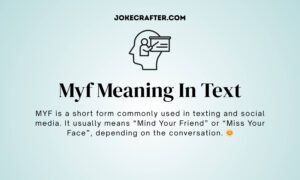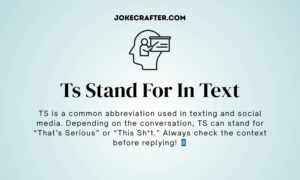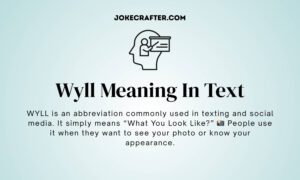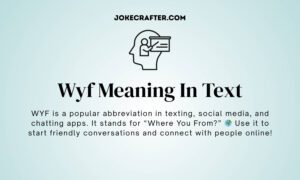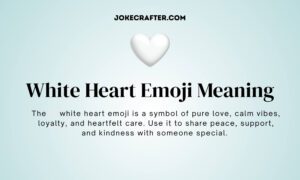Nonchalant means calm, relaxed, and unconcerned — especially when others might expect excitement, worry, or stress.
A nonchalant person acts cool and composed, even in situations where most people would react emotionally or dramatically.
It’s often used to describe someone who doesn’t show strong emotions, stays chill, and doesn’t let things get to them.
🧠 Simple Definition of “Nonchalant”
| Word | Part of Speech | Meaning |
|---|---|---|
| Nonchalant | Adjective | Calm, unconcerned, or showing casual indifference |
💬 Example Sentences:
“He stayed nonchalant even after hearing the shocking news.”
“She gave a nonchalant shrug, pretending it didn’t bother her.”
“He walked into the interview looking calm and nonchalant.”
💡 In short: To be nonchalant means to act like you don’t care too much, even if you secretly do.
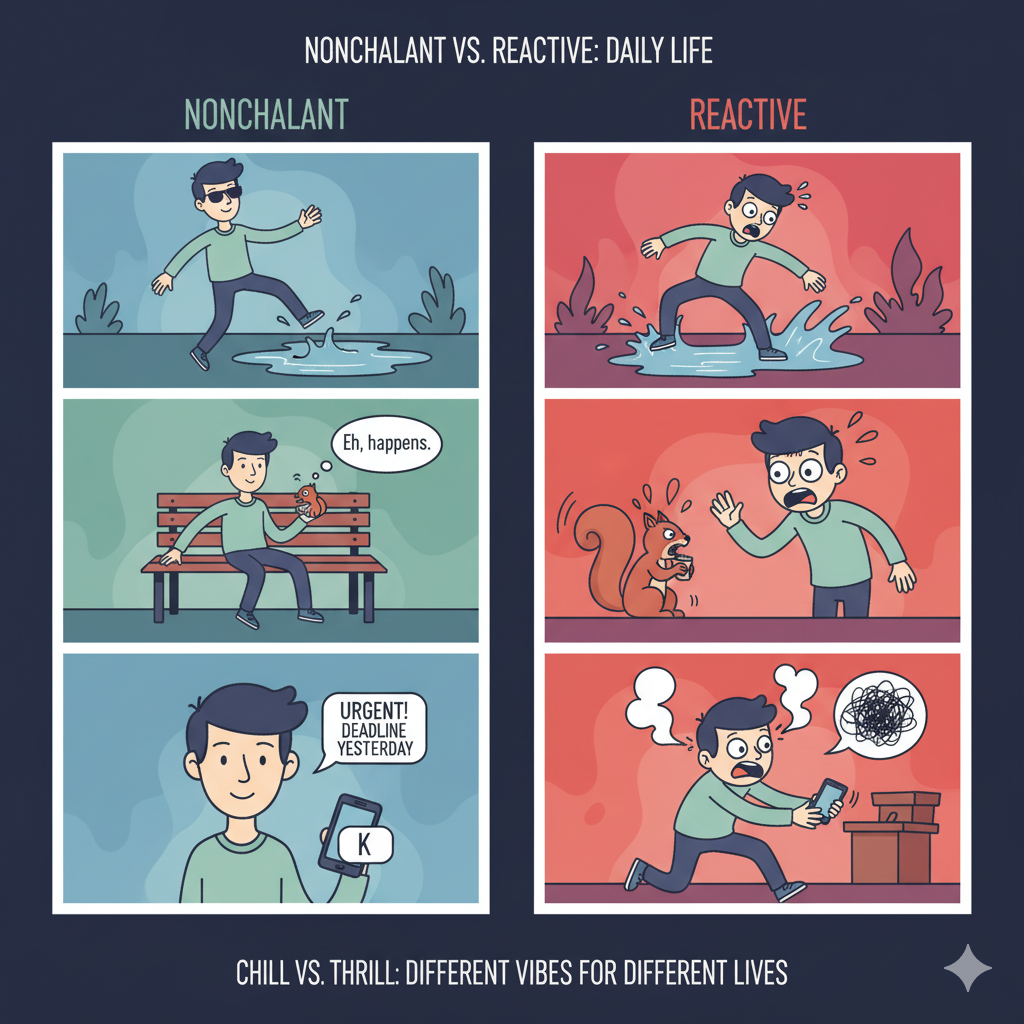
📜 Origin and History
The word “nonchalant” comes from the French verb nonchaloir, meaning “to be indifferent” or “not care much.”
Language Roots:
non- (not) + chaloir (to care) = “not caring”
💬 Example (Historical Style):
“He was so nonchalant in matters of great importance.”
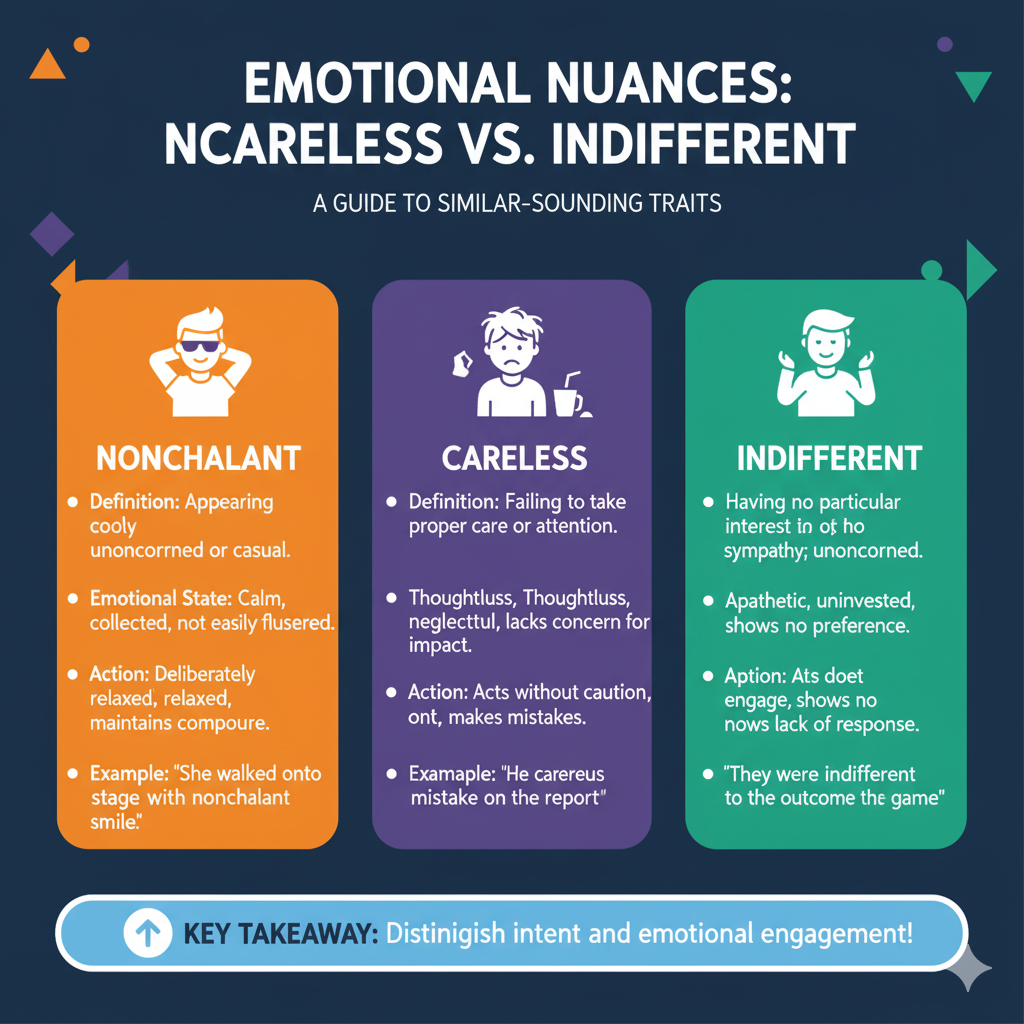
😎 What It Means to Be Nonchalant Today
In modern slang or personality context, being nonchalant means being chill, unbothered, and emotionally stable.
It’s often used in positive, neutral, or sarcastic tones depending on how it’s said.
💬 Common Meanings by Tone:
| Tone | Description | Example |
|---|---|---|
| Positive | Calm, confident, not overreacting | “She’s so nonchalant — nothing fazes her.” |
| Neutral | Quiet, lowkey, or reserved | “He’s just naturally nonchalant.” |
| Negative | Emotionless, detached, or careless | “He acted too nonchalant about the breakup.” |
💡 In Gen Z slang, “nonchalant” is often seen as a vibe — cool, effortless, mysterious.
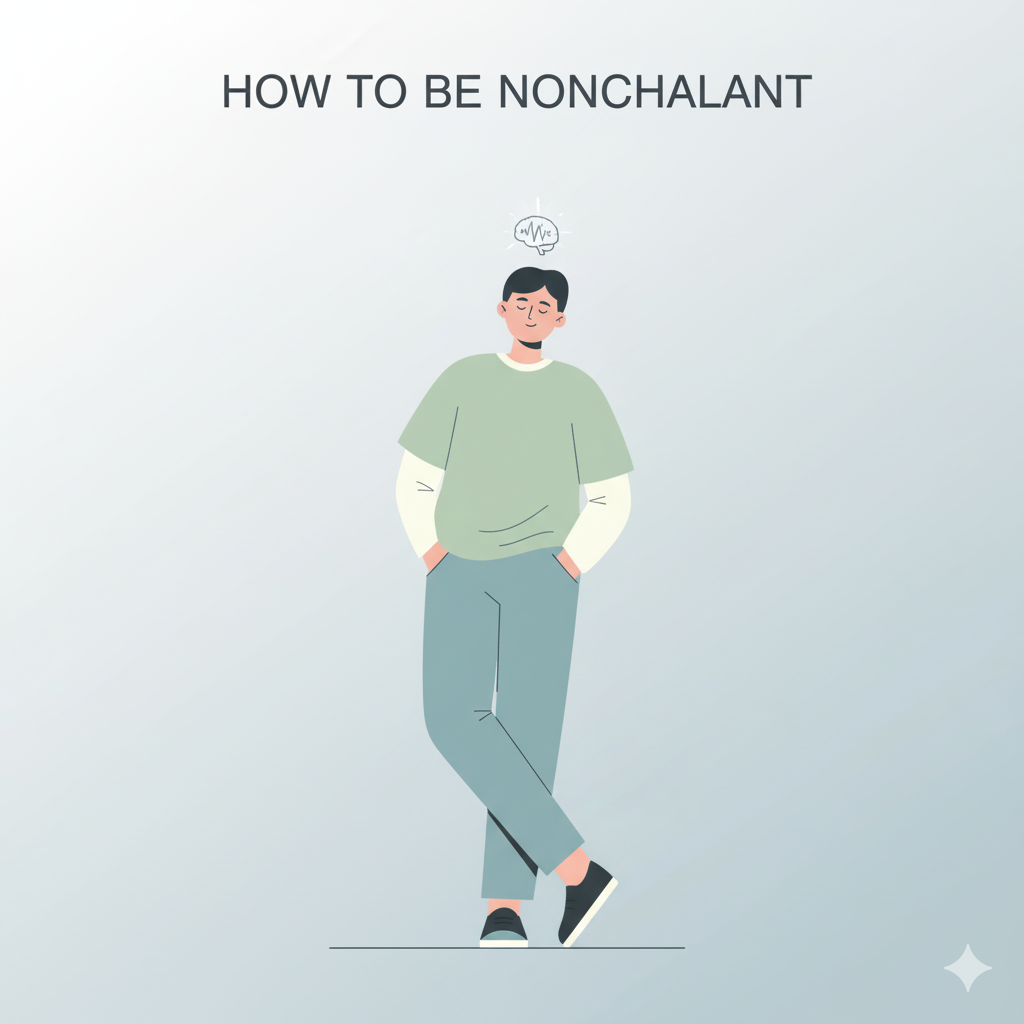
💬 Examples of “Nonchalant” in Daily Life
| Situation | Nonchalant Reaction | Common Reaction |
|---|---|---|
| Gets complimented | “Thanks.” (smiles slightly) | “OMG really?!” |
| Loses a game | “It’s fine, I’ll win next time.” | “Ugh, I can’t believe it!” |
| Sees ex at a party | “Hey.” (keeps walking) | Awkward, nervous |
| Late for meeting | “Sorry, traffic.” (no stress) | Panicking |
| Gets good news | “Cool.” | Excited |
💬 Being nonchalant means you don’t show too much excitement, anger, or sadness — you stay cool no matter what.
⚖️ Nonchalant vs Careless vs Indifferent
| Word | Meaning | Emotion Level | Example |
|---|---|---|---|
| Nonchalant | Calm, cool, unbothered | Light | “He looked nonchalant even during chaos.” |
| Careless | Not paying attention | Negative | “He was careless with his work.” |
| Indifferent | Not interested or concerned | Cold | “She’s indifferent to what others think.” |
💬 Difference:
Being nonchalant is about composure, not carelessness. It’s confidence with emotional control, not neglect.
🧍♀️ Personality Traits of a Nonchalant Person
| Trait | Description |
|---|---|
| Calm | Doesn’t get easily rattled |
| Confident | Secure in themselves |
| Low-Reaction | Doesn’t overreact to stress |
| Composed | Keeps emotions private |
| Emotionally Independent | Doesn’t rely on others’ validation |
💡 People often find nonchalant personalities attractive because they seem cool, mysterious, and emotionally mature.
💘 Is Being Nonchalant Attractive?
Many people, especially in dating culture, find nonchalant behavior appealing because it signals confidence and self-control.
Attractive Nonchalance:
Calm body language
Minimal reactions
Low drama energy
💬 However, too much nonchalance can seem cold or detached, so balance matters.
| Type | Pros | Cons |
|---|---|---|
| Healthy Nonchalance | Confidence, emotional control | Respectful detachment |
| Excessive Nonchalance | Mystery, chill energy | May seem uninterested or distant |
💬 How to Be Nonchalant (Without Being Rude)
✅ 1. Control your reactions: Pause before responding emotionally.
✅ 2. Speak calmly: Avoid raising your voice or over-explaining.
✅ 3. Smile lightly: Confidence often looks relaxed, not cold.
✅ 4. Don’t seek validation: Stay grounded in your own opinion.
✅ 5. Keep things private: Mystery builds the “nonchalant” aura.
💡 True nonchalance is about self-assurance, not pretending you don’t care.
🧘♂️ Nonchalant Aesthetic & Lifestyle
In pop culture, “nonchalant” has become more than a word — it’s a whole aesthetic.
Fashion: Effortlessly cool (baggy clothes, minimal effort)
Music: Calm, chill beats (think Frank Ocean or The Weeknd)
Social Media: “Unbothered” captions, muted colors, minimal text
💬 The nonchalant vibe = “I don’t chase, I attract.”
📚 Nonchalant in Sentences (With Different Tones)
| Tone | Sentence Example |
|---|---|
| Neutral | “He gave a nonchalant nod.” |
| Positive | “She handled criticism in a nonchalant way.” |
| Negative | “He sounded nonchalant about his responsibilities.” |
| Flirty | “She smiled nonchalantly and walked away.” |
| Sarcastic | “Oh sure, he’s so nonchalant about everything.” |
🆚 Nonchalant vs Apathetic
People often confuse nonchalant with apathetic, but they’re different.
| Word | Meaning | Emotion Level | Example |
|---|---|---|---|
| Nonchalant | Calm and composed | Low emotion, controlled | “He answered nonchalantly.” |
| Apathetic | Lacking feeling or interest | Emotionally flat | “She’s apathetic about life.” |
💬 Difference:
Nonchalant = “I care, but I’m chill.”
Apathetic = “I don’t care at all.”
💬 Common Phrases with “Nonchalant”
| Phrase | Meaning |
|---|---|
| “Nonchalant attitude” | Calm and unbothered approach |
| “Nonchalant smile” | Subtle, confident grin |
| “Nonchalant reply” | Casual, emotionless response |
| “Stay nonchalant” | Remain calm and unbothered |
| “Acting nonchalant” | Pretending not to care |
💡 Tip: When someone says “stay nonchalant,” they usually mean “don’t overreact.”
❓ FAQs About Nonchalant
1. What does nonchalant mean in a person?
→ Calm, composed, and emotionally controlled — not easily upset or excited.
2. Is being nonchalant a good thing?
→ Yes, if it means you’re emotionally stable. No, if it makes you seem cold or careless.
3. How do I act nonchalant in texting?
→ Reply briefly, don’t overshare, and use neutral emojis like “😌” or “🙂”.
4. What’s the opposite of nonchalant?
→ Anxious, reactive, or overly emotional.
5. Can nonchalant describe emotions?
→ Yes — it describes the tone or manner of how emotions are expressed, not the emotions themselves.
🏁 Conclusion
To be nonchalant means to stay calm, confident, and unbothered, even when life gets intense.
It’s a mix of emotional control and effortless coolness — the kind of composure people admire.
But remember: being nonchalant doesn’t mean you don’t care; it means you choose peace over panic.
So next time something stressful happens, just take a breath, smile, and stay — nonchalant. 😌
David is the creative mind behind jokes Crafter, a hub for clever jokes, witty wordplay, and laugh-out-loud content. With a passion for humor and a knack for crafting the perfect punchline, David brings smiles to readers across the globe. When he's not writing, he's probably thinking up his next viral joke or enjoying a good comedy show.












